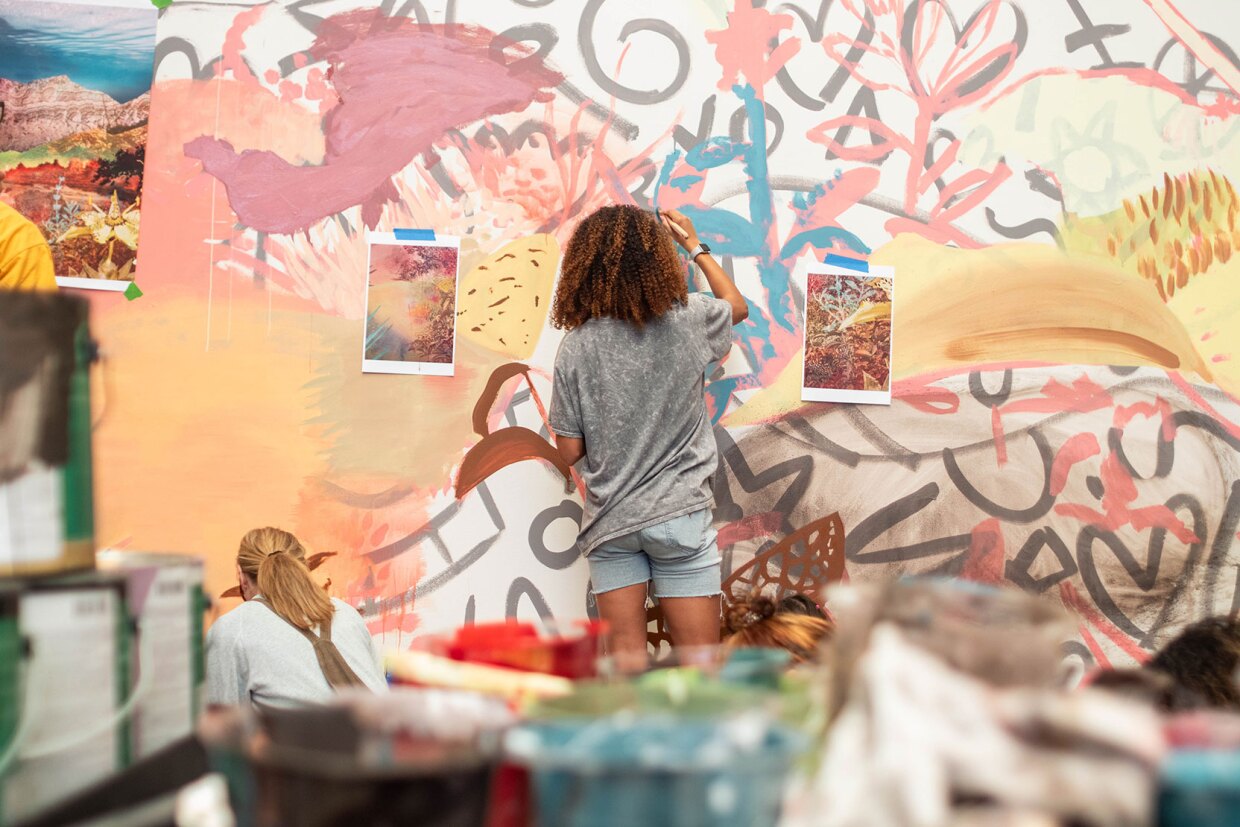In Balboa Park, the San Diego Natural History Museum (the Nat) set the stage for next year's 150th anniversary celebration with a massive new mural in their vast atrium.
Visible as guests enter the museum's north entrance — and you can catch a glimpse from most of the museum's floors — it's a work called "Frasera" by artist and San Diego State University (SDSU) professor Eva Struble.
Struble's work often explores the intersection of the region's landscapes with the interior or urban spaces her work occupies. Abstract or surreal treatments disrupt, without upending, the natural order and beauty. Her work has been shown at the Museum of Contemporary Art San Diego, the Athenaeum Music and Arts Library and more, and her public art works can be found at the San Diego County Operations Center, the New Children's Museum, the airport's Admiral Boland Way and more.
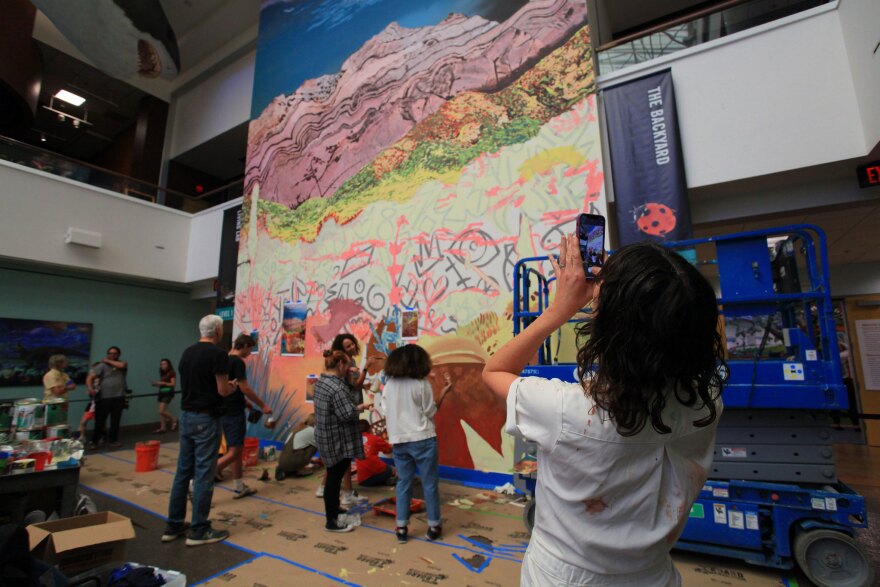
"Her recent projects have dealt with Southern California botany, ethnobotany and the physical experience of landscape here in San Diego, so we have a very strong philosophical bond with her on the project," said Judy Gradwohl, the Nat's president and CEO.
This new mural is inspired by regional specimens from the Nat's collections, including endangered creatures, pegmatite rock and botanicals — like yucca, and the mural's namesake Frasera parryi, a tiny flower rendered huge in the painting.
Struble worked with artist Jonny Pucci on the project, and also enlisted the help of students from SDSU and San Diego High School. The work is 33 feet tall and 23 feet wide.
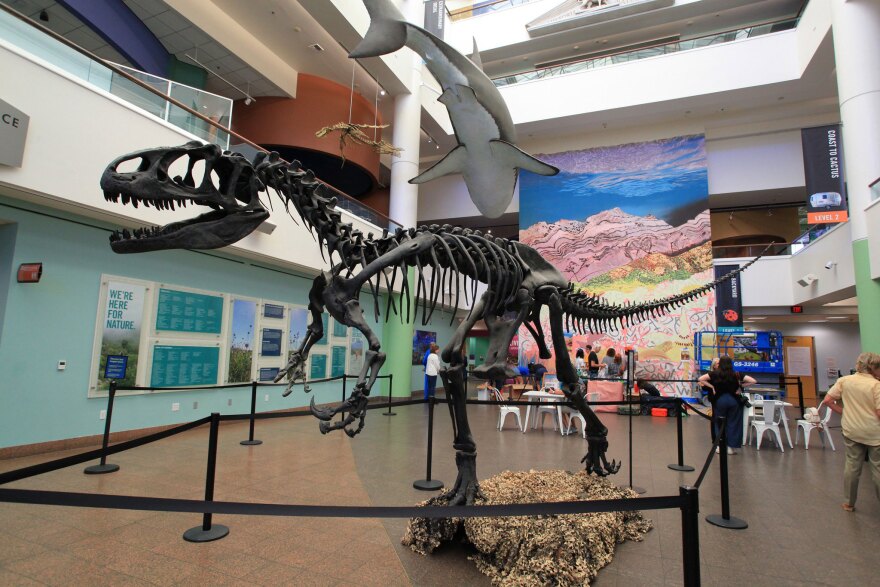
"I wanted it to be an expressive painting that feels loose and doesn't feel like a photograph, like something that was just pasted up on the wall — but that it has our hand in it."Eva Struble, artist of "Frasera"
"The museum prompted me with the idea of 'bursting with biodiversity' in (the) San Diego and the Baja region, and so I wanted to combine a lot of aspects of the landscape, large and small in this piece," Struble said. "So going from Iron Mountain, a place where I love to go hiking, down to the very small Quino Checkerspot Butterfly, which is a tiny endangered butterfly that we have here and only exists in a few small areas locally."
The design draws the eye to a trail, surrounded by native flora and fauna, which spans off into the distance toward some mountains. A closer look reveals the unexpected: the scale is topsy turvy, the mountains are actually a close-up of pegmatite rock, and the sky is substituted with ocean. The colors are vivid, hyper-saturated hues that make the work pop, but still honor the real deal.

It's easy to see Iron Mountain's influence in the work — there's a strong resemblance to the trail's approach to the summit cone — but just as easy to be disoriented by the surreal use of ocean in the sky, evoking peering off a cliff edge along a beach trail.
"I wanted it to be an expressive painting that feels loose and doesn't feel like a photograph, like something that was just pasted up on the wall — but that it has our hand in it," Struble said.
The impact of nature on Struble goes beyond her own artistic practice: She teaches a field drawing class at SDSU that combines hiking, drawing and ethnobotany. Students embark on hikes on local trails to observe and draw the region's botany with an understanding of the history of the land.
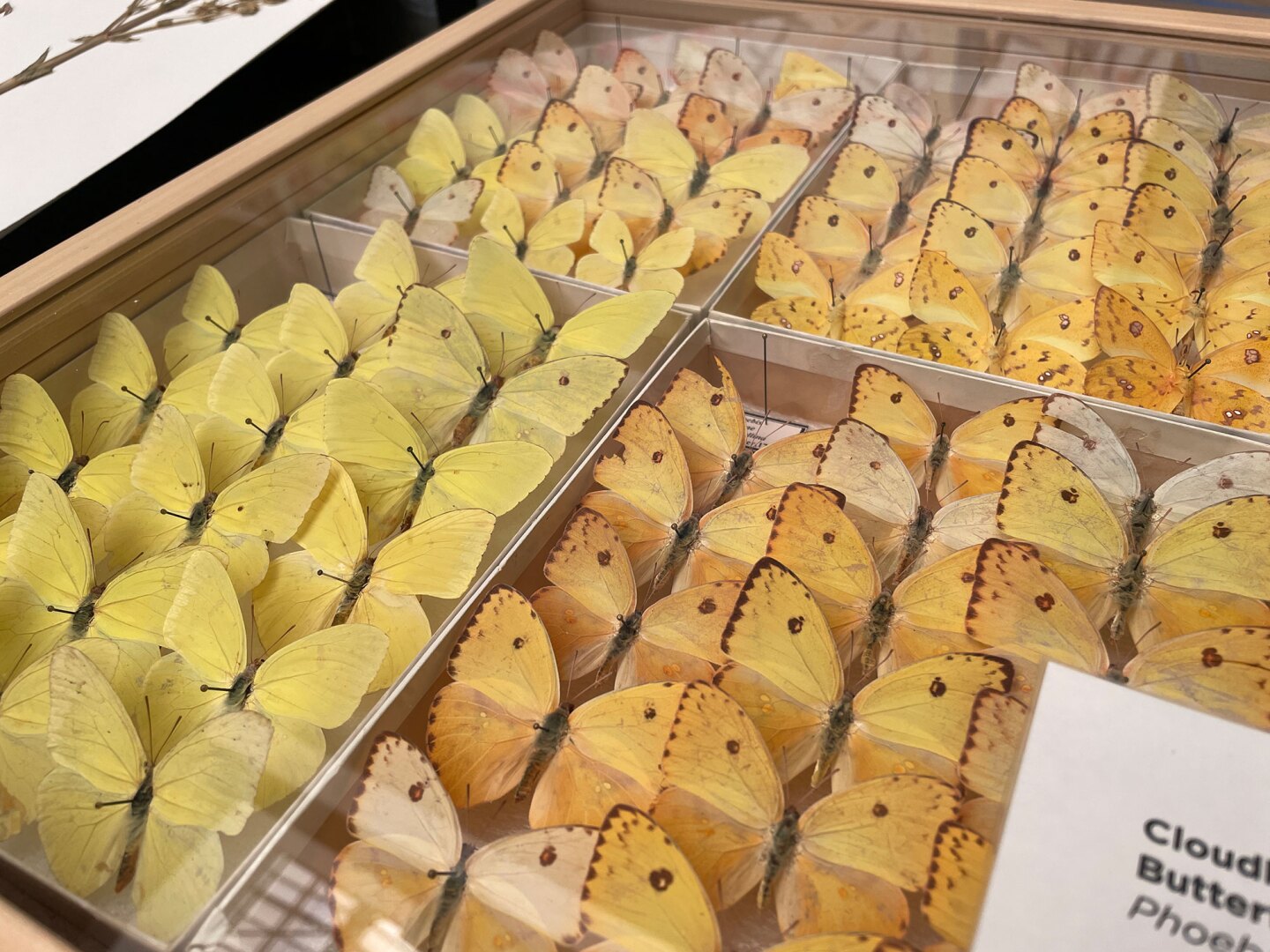
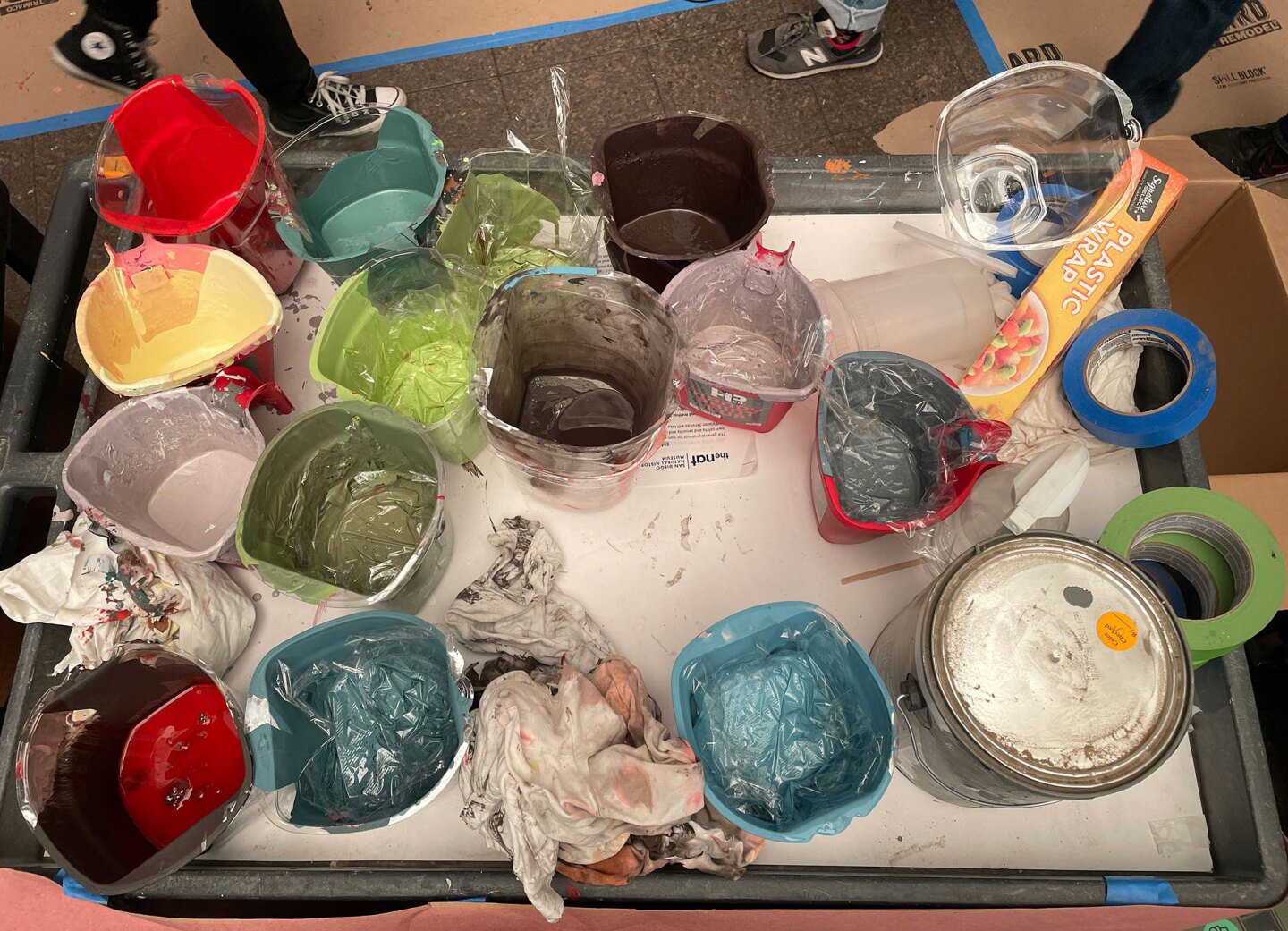
Struble says nature instills a "sense knowledge," — something she wants to get across in her teaching and her artistic practice. A single plant may have a different meaning at different times of the day — e.g., the differing fragrances in the heat or in the fresh morning dew — or at different seasons, or across generations. A yucca may mean something different to a human today than it did for the Kumeyaay people hundreds of years ago, she said.
"It's such an amazing risk that (the Nat) took to hire an artist to do something here, because I think obviously they don't want to portray anything that's not factual in the museum," Struble said. "And so this piece is more playful and it's not just about facts per se — I mean it's factual on certain levels, but it's also playing with scale, playing with color. So I was trying to walk that line between showing things that I found in the collection here and that I've talked to the botanist about, while also letting it be loose, open, colorful, surprising. I guess it would be really nice if people can be surprised and see new things in it every time they walk by."
Struble's mural is slated to be complete by Friday, Oct. 13.
With the San Diego Museum Council's Kids Free San Diego coupon, the San Diego Natural History Museum is free for up to two children aged 12 and under with one paying adult, through Oct. 31.

